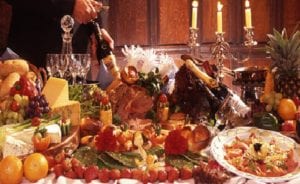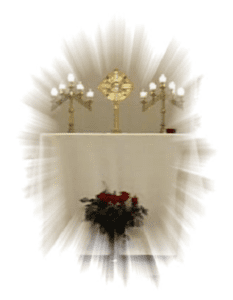
Heaven’s Wedding Feast
Why is the Kingdom of God like a wedding feast? The Book of Isaiah tells us about the messianic banquet (see Isaiah 25:6-10). In the Old Testament, the messianic banquet is the great celebration of Yahweh’s victory over the enemies of Israel. It is an eschatological event, which means that it will happen in the end times. At that time, peace and righteousness will be established, and there will be no more suffering and death. There will be a great feast of rich food and choice wines, and there will be abundance and prosperity for all. Early Christians adopted the concept of the messianic banquet, in which the Kingdom of God will be like a great wedding feast in which Jesus Christ, the Messiah, will preside.
The Parable of the Wedding Feast from Matthew’s Gospel basically has two parts; 22:1-10 is the first part, while 22:11-14 is the second part. In the first part, a king gave a wedding feast for his son. The king sent his servants to summon the invited guests, but they refused to come. When the king sent out his servants again, some of the invited guests ignored the invitation, while others held the servants, mistreated and killed them. The king was enraged and sent his troops to kill the murderers and burned their city. The king then sent his servants to go out into the streets and gather all that they find, bad and good alike, and the hall was filled with guests. The first part is similar to the Parable of the Great Feast from Luke’s Gospel 14:15-24.
In the first part of the parable, servants were sent out, servants were mistreated and killed, the murderers were punished severely, and a new group of people were given the privilege which was rejected by the original group. Therein lies the first lesson of the parable; the people for whom the blessings were originally intended rejected it; therefore, the blessings were given to a people who accepted it. In the same way, if we reject God’s blessings and graces, it will not go to waste; it will be given to someone who wants it.
In the second part, the king came to meet the guests and found one who was not wearing a wedding garment. The king asked the man how he came into the wedding banquet without a wedding garment, but the man was reduced to silence. The king then ordered the attendants to bind that person’s hands and feet, to cast him into the darkness outside where there was wailing and grinding of teeth. The parable ends with Jesus saying, “Many are invited, but few are chosen.” (Matthew 22:14) The second part is found only in Matthew’s Gospel, so some scripture scholars think that it is in itself a separate parable.
The second part of the parable refers to the day when we stand before God for judgment. The key point is the significance of the wedding garment; what does the wedding garment in the Parable of the Wedding Feast represent? Many people have interpreted the wedding garment to mean different things: St. Augustine said it was love; Martin Luther said it was faith; still others said it represents both faith and works. But can the wedding garment exclusively be only one of these things? The parable is quite clear that it is something that is required to enter the Kingdom of God in heaven. Faith, good deeds and love – all these things work together: The Letter of James 2:14-26 testifies on the inseparability of faith and good deeds, while the First Letter of Paul to the Corinthians 13:1-13 upholds the primacy of love over all spiritual gifts. Can a person of faith not have a loving heart? And can a person with a loving heart be bereft of good deeds? It is quite compelling that the wedding garment describes the disposition of a person’s heart and soul – a person of faith with a loving heart and good deeds to show for it.

Eucharistic Adoration has resumed on its regular schedule every Sunday beginning at 9:30 am in the chapel.

Attention all parents! Ask your teenage children to join a new Youth Program (in English) which begins next Saturday, Oct. 17 from 2:00-2:20pm. The facilitator is Miss Heyinn Rho, a 25-year old youth leader from the Alliance of Holy Family International (AHFI). Miss Rho is a Georgia Tech graduate who currently works as a materials engineer at PAI Industries. Miss Rho attends Mass at Holy Name of Jesus Chinese Catholic Mission and she is doing this Youth Program for our church community. The goal of this Youth Program is to help and encourage our teens to live as Jesus’ disciples. Currently, it has 4 scheduled meetings, 20 minutes every Saturday at 2pm: Meeting 1 on Oct. 17, Meeting 2 on Oct. 24, Meeting 3 on Oct. 31, Meeting 4 on Nov. 7. All meetings are virtual and you can participate right from your own home. For sign-up or inquiry, please email heyinnrho@gmail.com.

Bible study has resumed. Bible study in Chinese meets every Wednesday at 10:00 am. Bible study in English meets on the first and third Mondays every month at 6:30 pm. All participants are required to wear masks and observe social distancing. The social hall has been reserved for bible study during these times.